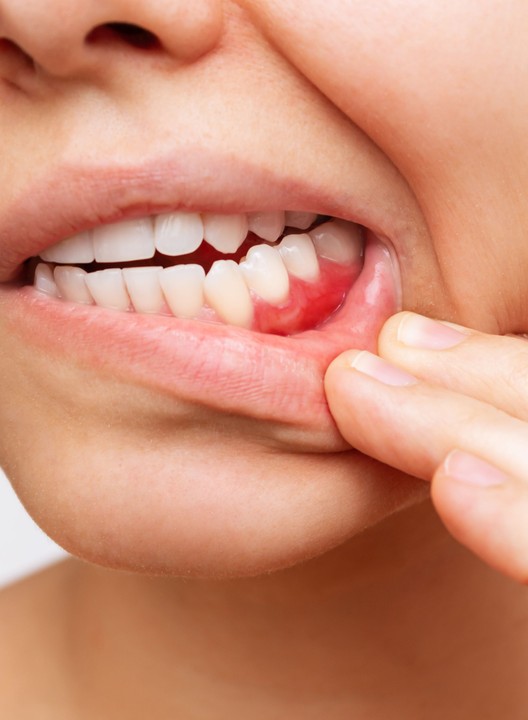Periodontics is the area of dentistry that focuses on the supporting structures of teeth, such as gums, jawbone, and the diseases and conditions that affect them. Dr. Lovelace has long held a particular interest in periodontics, so much so that he was the only student in his dental class to be honored with an award for his dedication to this dental discipline. Much like the foundation of a house, if your gums and jawbone are not healthy and robust, your oral health will suffer and often be affected by tooth loss.
Crown Lengthening
Another issue periodontics address is crown lengthening to correct a gummy smile or to make room for a crown or a dental bridge to be properly attached. Dr. Lovelace carefully removes gum tissue to expose more of the tooth's surface, providing enough space for bonding restoration hardware and preventing food from becoming entrapped.
The first stage of gum disease, gingivitis, is fully reversible if diagnosed and treated early in the condition.
Teeth Scaling and Root Planing
For advancing cases of periodontitis, the dentist will perform teeth scaling and root planing to halt the progression and save you from tooth loss. This procedure is also referred to as deep cleaning and, depending on the severity of the periodontitis, may take more than one appointment.
The dentist will use a local anesthetic to keep you comfortable during the deep cleaning appointment. Teeth scaling is done first, which is simply scraping off plaque from along each tooth, between them, and any pockets between your teeth and gums that have developed.
The next step is root planing. During this step, the dentist uses a scaling tool to smooth the roots. This step is critical as smoothing the roots allows the gums to reattach to teeth, helping to avoid bacteria and plaque build-up below the gum line in the future. The dentist may use antimicrobial agents in your mouth during the deep cleaning or prescribe oral antibiotics or a special mouthwash to aid healing and prevent infection. Dr. Lovelace uses Arestin for patients requiring extra support for gum health from a long-lasting antibiotic.
The recovery period is three to five days, and good home oral hygiene is of the utmost importance post-treatment.
Having this procedure done when it is recommended by the dentist significantly reduces the complication of tooth and bone loss from periodontal disease.
Flap Surgery
Sometimes periodontitis is so advanced that routine planing and scaling are insufficient to remove all of the plaque and tarter. The recommended treatment, in this case, is flap surgery. After numbing the area, the dentist creates a small flap to access the underlying structures. The dentist removes all plaque, tartar, and inflamed tissue between the teeth and the roots. In some cases, Dr. Lovelace will perform osseous recontouring to smooth bone defects to help prevent future infections. The gum tissue is placed back, and sutures are used to close the incisions. If needed, the dentist will use an intraoral bandage to cover the surgical site until it has healed.
Recovery requires a few days; during this time, you should eat soft, cool foods like pudding or gelatin. Most patients have some discomfort during the healing process; either prescription pain medication or over-the-counter medications are used to manage discomfort. Elevating your head with additional pillows and using ice packs will aid in pain relief and minimize bleeding. Gentle, salt water rinses also help reduce swelling and pain. Avoid smoking, using straws, and spitting until your gums have healed.
Flap procedures are your best remedy for saving natural teeth with advanced periodontitis. Once the surgery site has healed, your gums will return to a perfect, healthy pink; you can maintain this improvement by brushing with a soft bristle toothbrush at least twice a day and flossing daily. The dentist will monitor the health of your gums at your regularly scheduled cleaning and exam appointments.
Flap procedures may seem daunting, but saving your natural teeth is well worth investing in advanced periodontitis treatment. Your smile will thank you!


